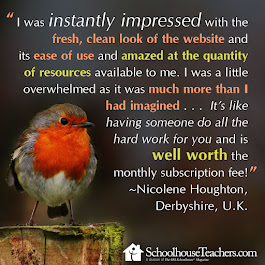There is a quote that goes something like this: It is the work of children to play. I wish I could remember the exact wording or even who said it, but I am drawing a blank today and don't have the time to research! But my point is that children can and do learn by playing, and it's not just little children that learn this way. Older kids, teens, and even adults can learn, or reinforce or apply learning, by enjoying fun and games.
We try to do lots of hands-on activities in our homeschool, and often those things turn out to feel like it's all fun and games. Sometimes, it really IS fun and games. We've found that games can not only be a lot of fun and a way for family members to interact with each other, but there are lots of educational benefits as well. Obviously, some games lend themselves to this more than others!
How have we used games in the "classroom"?
In history studies, we find that in most cultures and during most periods of history, we know something about how people - and children, in particular - spent some of their leisure time. When we find a tidbit of information like this, we like to give the game a try if possible. We've found a lot of game ideas when looking at colonial times.
| playing quoits at Historic St Mary's City |
| learning to play marbles |
We know the game Chinese Checkers has little to do with China, but we had fun playing anyway. It led to a discussion of how Chinese art styles became very popular in Europe and America, and because this particular board once belonged to my grandparents, we talked about how families entertained themselves before there was TV or even readily available electricity!
I remember making a senet board with the boys years ago when we were studying ancient Egypt. No one really knows how the game was played, but we invented some rules of our own. We've also played chess as part of school, both when studying India (because it was believed to be invented there) and when studying Europe (because it was such a popular pastime among the nobility).
We used a Jenga game to learn about structural physics in our co-op class last year.
At that co-op, we built model trebuchets and catapults and the students made a contest of which machine could fling the projectiles the farthest.
Even when playing games entirely on their own (in other words, not something I assigned!), I think that games can improve their critical thinking skills, problem solving skills, and reinforce math or reading skills and even help with history.
For example, my kids cobbled together three versions of Monopoly into what they called "Meganopoly" and they had to do some very creative thinking to adjust the rules to make it work.
My kids have also really enjoyed computer based games like Civilization and Risk (they prefer the computer version of that classic board game). I don't understand those kinds of strategy games at all and am not interested, but they like to play and I've noticed that they are familiar with the names of great leaders from history (Peter the Great, Hammurabi, and others) because they are characters in these games. Other computer games like Zoo Tycoon and Roller Coaster Tycoon are favorites as well, and they learn about economics playing those!
I know the ideas that I've pulled up very quickly here are just scratching the surface of the many ways games can be used for fun and education in our homeschools. I'm looking forward to seeing what my fellow Crewmates have to say about this topic because there are rarely objections to the words "Wanna play a game?" at our house!
Visit the Schoolhouse Review Crew blog (this link will be live on Tuesday, October 2nd) to see what other Crew members have to say. You can also visit the Schoolhouse Review Crew blog homepage to see the reviews we are working on, past reviews, and past blog cruise topics.







































1 comments:
I love your hands-on game ideas. The catapult looks especially fun!
Post a Comment
I love comments! It's like visiting over a virtual cup of coffee.